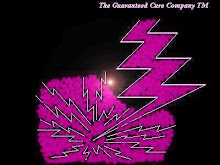Thinking Your Living, Living Your Thinking
According to physics, a light beam consists of particles (photons) and waves. If you observe a light beam in a certain way, it appears to consist of particles. If observed in another way, it appears to consist of waves. Which observation is correct? They both are. Similarly, a human life consists of thoughts, emotions, behavior, and environment. Your specific observation of a human life yields thoughts by what is said, emotions by facial expression, behavior by activities, or environment by surroundings. Your focus determines your observation -- and any one of your observations is correct.
Thoughts: By what is said, a person reveals his thoughts. His thoughts may be positive or negative, moral or immoral, rational or irrational, etc. If you completely understand a person's thoughts, then you completely understand the person.
Emotions: By facial expression, body posture, and voice tone, a person reveals his emotions. His emotions may be sad or happy, fearful or confident, angry or calm, etc. If you completely understand a person's emotions, then you completely understand the person.
Behavior: By activities, a person reveals his behavior. His behavior may be hardworking or lazy, sociable or isolating, safe or risky, etc. If you completely understand a person's behavior, then you completely understand the person.
Environment: By work and home surroundings, a person reveals his environment. His environment may be luxurious or slummy, ordered or chaotic, quiet or noisy, etc. If you completely understand a person's environment, then you completely understand the person.
How can observing any one of these factors (thoughts, emotions, behavior, or environment) yield enough information to completely understand a person? Our light beam example answers this question. Not only does a light beam consists of particles and waves -- but the particles and waves are one and the same. Not only does a human life consists of thoughts, emotions, behavior, and environment -- but the thoughts, emotions, behavior, and environment are one and the same.
Thoughts express as emotions, expressing as behavior, expressing as environment. For example, thinking positive expresses as feeling confident, expressing as behaving motivated, expressing as living in luxury.
For more success information, please go to http://www.theguaranteedcure.com/

